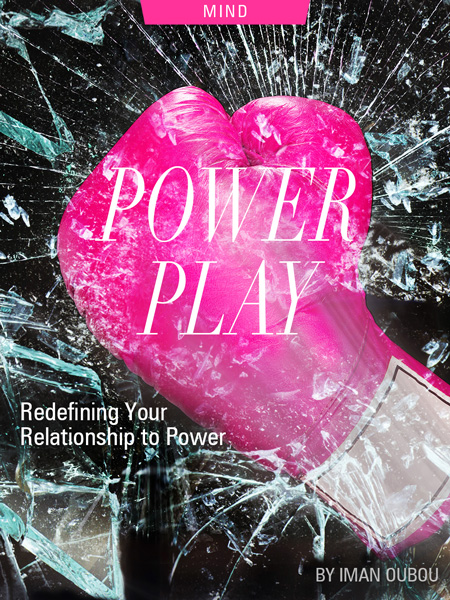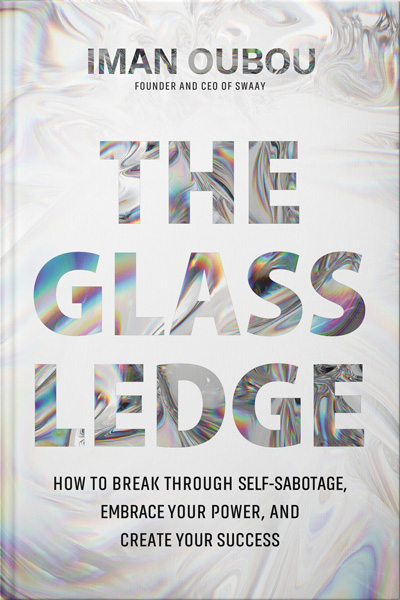Estimated reading time: 5 minutes
One entrepreneurial woman’s journey to cease from self-sabotage and fitting into cliched stereotypes, reveals a new kind of power
—
When we fail to define and claim our power, we unknowingly place our worth in the wrong hands and ultimately pay a significant price for it, losing ourselves as a result.
After having launched my startup media platform, SWAAY, as a novice in the world of entrepreneurship, I had finally reached the notoriously cutthroat fundraising phase of my new career. I was as bright-eyed and hopeful as any newcomer would be, but I had to look and play the part of a powerful woman if I wanted investors to take me and my business seriously. I had dressed for the part in my well-tailored pantsuit and embodied an air of power, confidence, and self-assurance, even though in reality, I was brimming with anxiety.
Looking back, I realize that the idealized vision of the powerful woman I wanted to be was a culmination of traits that I thought I needed to embody after having seen them so skillfully mastered by the women I held in such high regard.
However, it wasn’t until I began meeting with other ‘powerful’ people that I came to learn how flawed my relationship with power actually was.
One of the most notable incidents I can recall occurred while meeting with a successful investor and media industry veteran. While I was excited to deliver my pitch and discuss business as it pertained to the future of my company, I instead found myself on the receiving end of an onslaught of his inappropriate opinions and unsolicited advice.
“Honey, let me give you one piece of advice. Never mention your beauty pageant past. You’re a businesswoman now, and if you want to be taken seriously, you shouldn’t bring up your pageant history.”
Like many of us would be, I was in complete shock by his blatant disrespect—not to mention outdated perspective. But rather than leverage this moment to educate him on the significance pageantry has had in my story and in making me the businesswoman sitting before him, I gave his words the power to make me feel worthless.
Much like myself, so many women fall victim to limiting self-beliefs and imposter syndrome. We hand our power over to false allies who we believe to know better about our strengths than we do. More often than not, we misconstrue our own perception of power with pride, leading us to our inevitable downfall. As I came to this realization, I was tempted to sink further into self-pity and shame for having allowed myself to react this way, but instead I chose to reclaim my power and here is how you can do the same!
Take Accountability
Before you can begin healing your relationship with power, it’s important that you first hold yourself accountable by taking responsibility for your negative beliefs and actions. Consider what disempowering beliefs you succumb to the most and what situations are most triggering of these beliefs.
One way you can make the most out of this exercise is to write down the beliefs and actions that don’t benefit you and create a list of truths to counter them with. You can refer to that list later on if you ever find yourself falling back into old patterns. It takes courage to look, but revealing is healing.
Understand What Power Means to You
In order to understand what power means to you, a great first step is to set some time aside to explore what power has looked like to you in the past. Uncover the meaning it’s held for you. Think back to a time when you felt the most powerful and consider the following:
- What was the situation?
- Why did you feel powerful?
- What were the most prominent emotions that you felt at the time?
Now imagine what would make you feel powerful at your current stage of life by considering:
- What attributes would make you feel powerful?
- What does it look like to be powerful in your career/craft?
- What would you like to accomplish in order to feel more powerful?
For some women, power means having a high-level position, mastering a skill, achieving a goal or even showing up as a stronger, more confident person than you have been in the past. Explore your options and connect with both the physical and emotional elements of what power feels like to you.
Hone Your Internal Locus of Control
An internal locus of control can be defined as the belief that you control your own destiny as opposed to having your destiny pre-determined for you. When you hone and refine this internal belief, it becomes easier to operate in the world from a place of self-assurance, confidence and resounding clarity. Although your external circumstances may create limitations for what you can achieve, your internal locus of control will ultimately help you navigate around those roadblocks and remind you of your truth.
Here are some ways you can begin the process of becoming more internally focused:
Create a checklist: By creating a list of achievable goals you can work towards on a daily basis, you can build momentum towards achieving bigger goals.
Embrace independence: Learning to stand on your own is far more important than you may realize. Start by making decisions for yourself where you would normally ask for or listen to an outside opinion. While this in itself is a big step, an even bigger step is following through each time you make a decision. Each time you achieve this, you will increase your trust in your own judgment aligning with your internal compass—and making it easier to ignore external opinions and advice meant to sway you.
To be powerful is to connect to one’s inner truth in all of its facets. It isn’t about denying where we’ve come from, the roles we’ve played, even the missteps along the way. It has all played an important role to arriving here…empowered.
You may also enjoy reading The Architecture of Thought: Mind Over Matter is Real, but You Have to Believe it to See it, by Samantha Glorioso.

